These are the 10 coolest features of the Tesla Model S
Tesla is still making waves in the automotive industry with its innovative electric cars setting new standards in automotive design, performance, and technology. Among its range of vehicles, the Tesla Model S stands out as one of the most impressive and popular electric cars on the market. In production since 2012, the Model S 5-door liftback is the first EV to finally convince mainstream luxury car buyers.
The current 2023 model can keep going for up to 405 miles on a full belly, and the Plaid performance-focused variant is the fastest production car you can actually buy, thanks to a 1,020-horsepower tri-motor that sends the car sprinting from rest to 60 mph in an air-splitting 2.1 seconds.
In other words, the Model S is faster than some million-dollar hypercars that are so few you couldn’t own them even if you have the cash. The Model S is also substantially ahead of its closest rivals, such as the BMW i7 and Lucid Air. If we have anything against this car, it's the unimpressive interior design considering the six-figure price tag. In any case, the unique Autopilot software makes up for the cabin deficiencies. This article explores the unique features and frequently asked questions about the Tesla Model S.
1. Long Range:
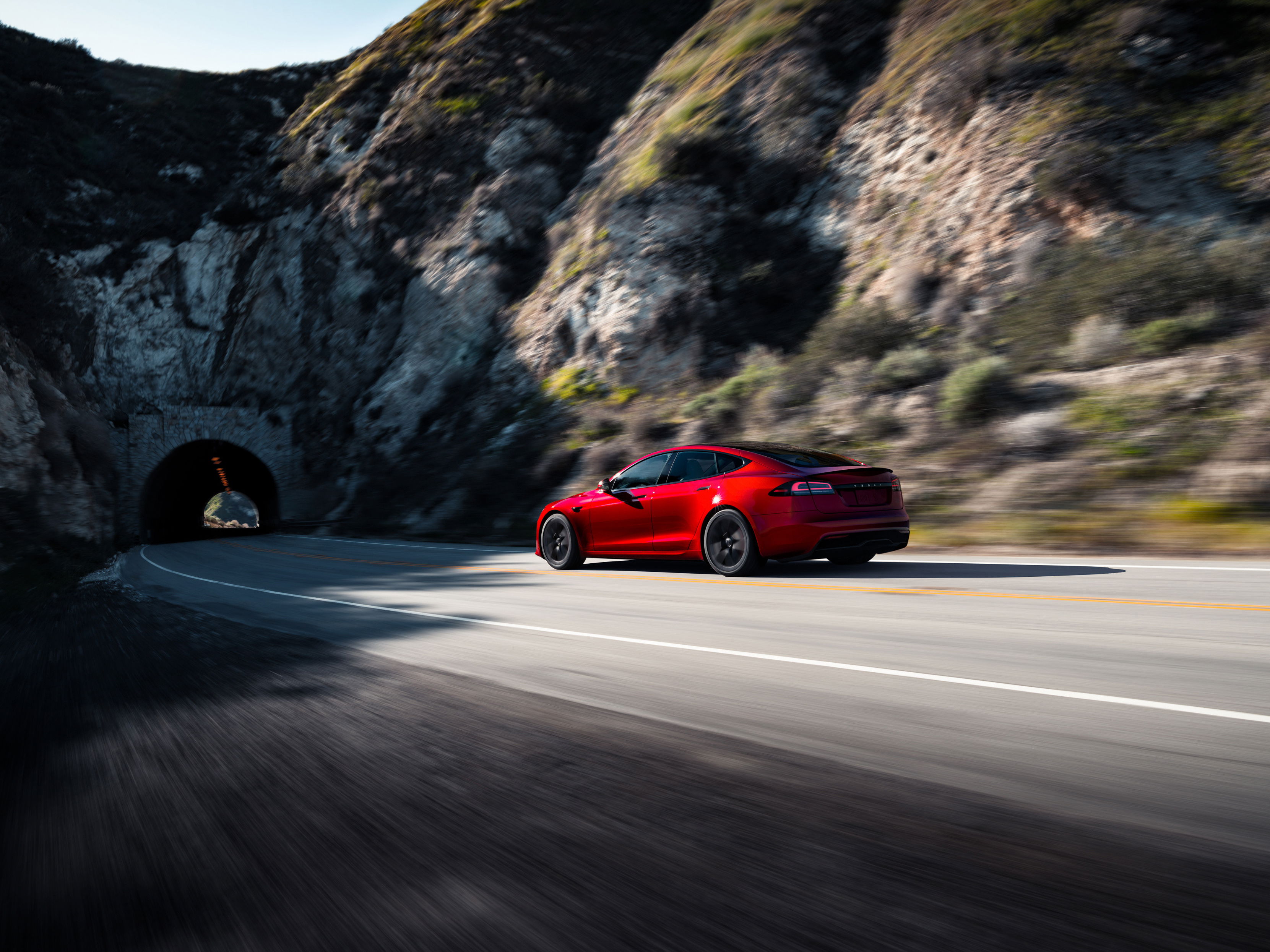
One of the most impressive features of the Tesla Model S is its long-range capability. The car can travel up to 412 miles on a single charge, making it one of the longest-range electric cars on the market. This means that you can travel long distances without worrying about running out of battery.
2. Fast Acceleration:
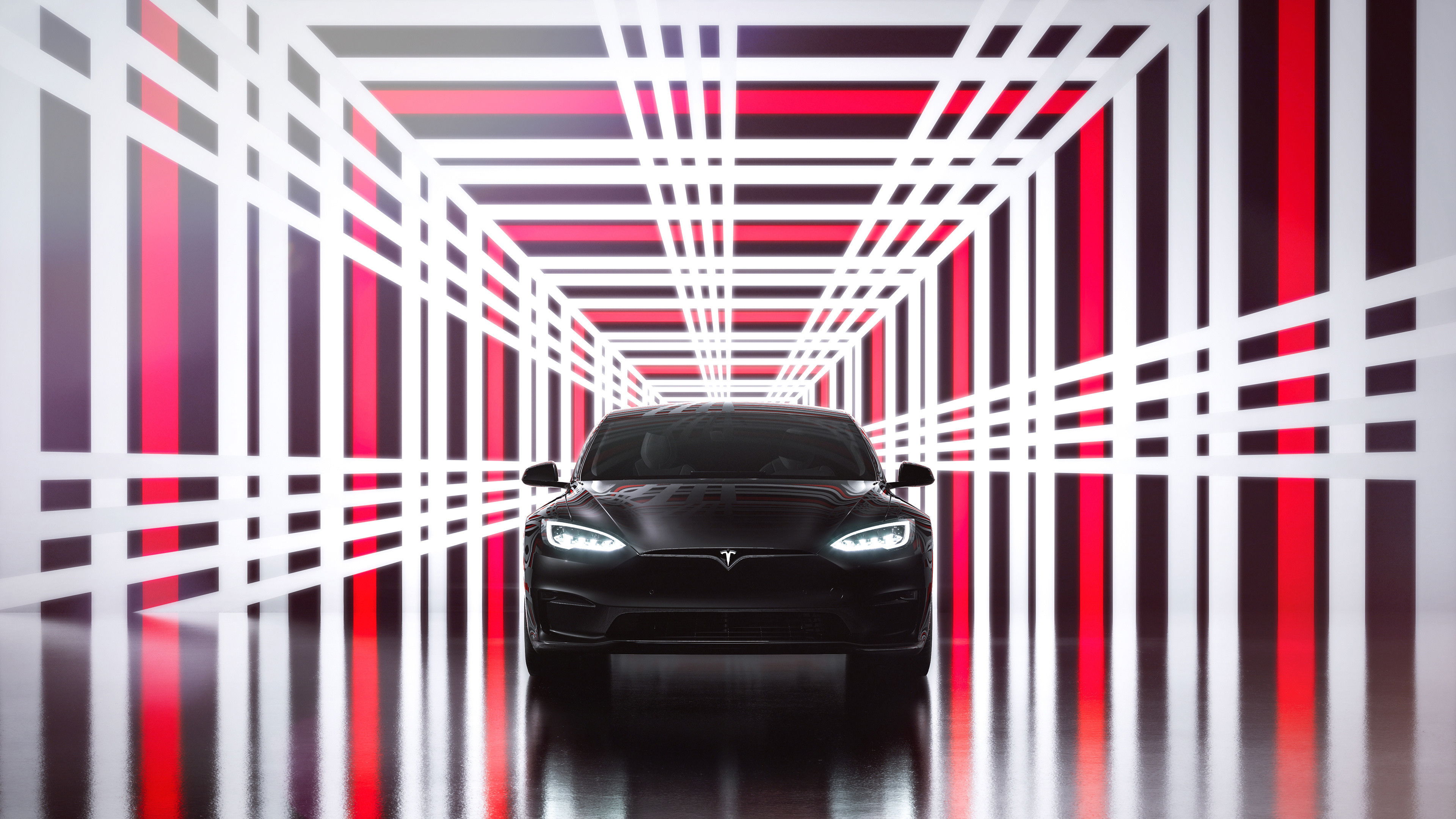
The Tesla Model S is known for its impressive acceleration. The car can go from 0 to 60 mph in just 2.1 seconds, making it one of the quickest production cars in the world. This is thanks to its electric powertrain, which delivers instant torque and acceleration.
3. Autopilot:
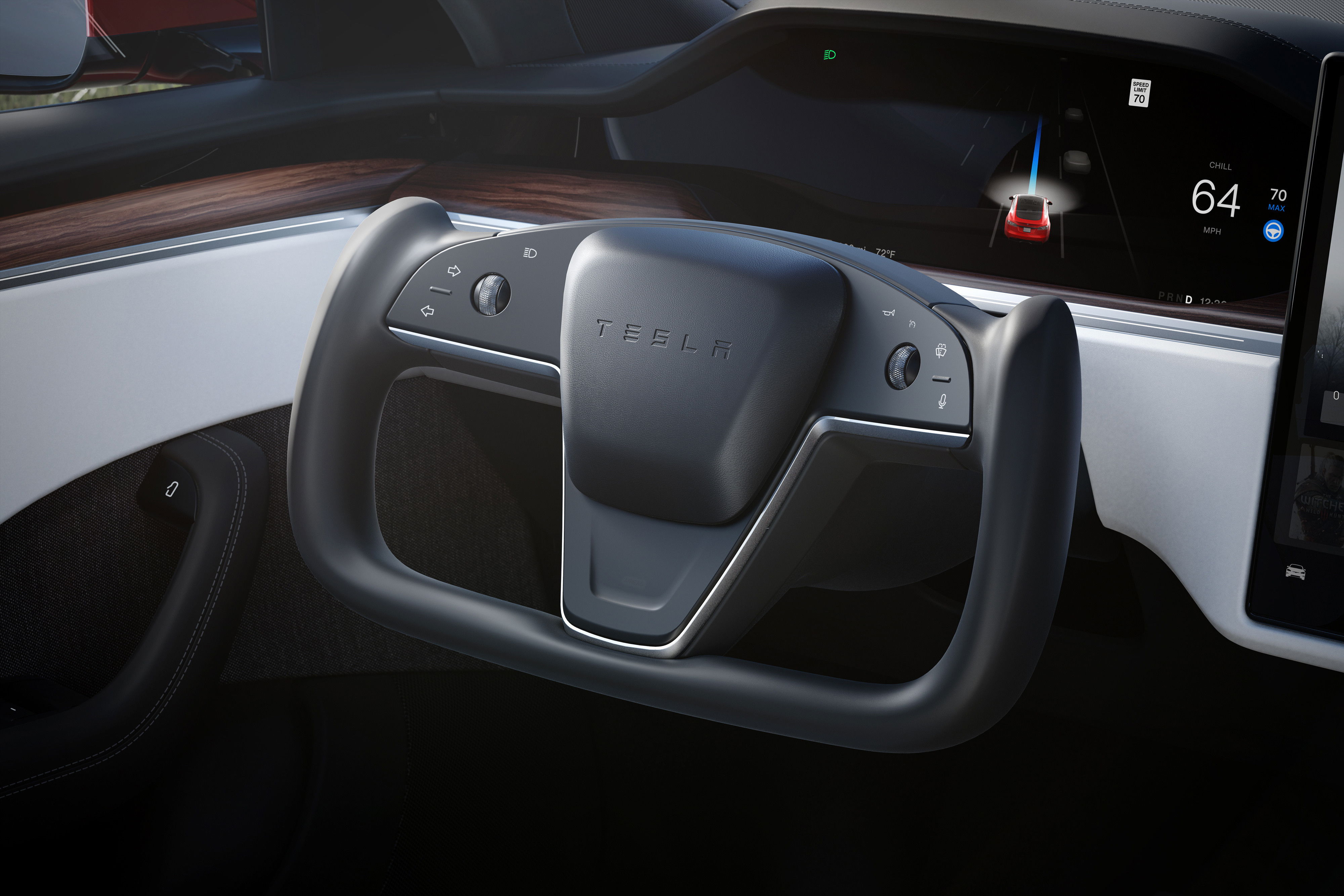
Another impressive feature of the Tesla Model S is its Autopilot system. This system uses advanced sensors and cameras to detect and respond to the car's surroundings.
It can assist with tasks such as lane changing, parking, and even navigating on highways. Admittedly, Nigeria isn’t ripe for Autopilot's full driver-aid capabilities.
4. Over-the-Air Updates:
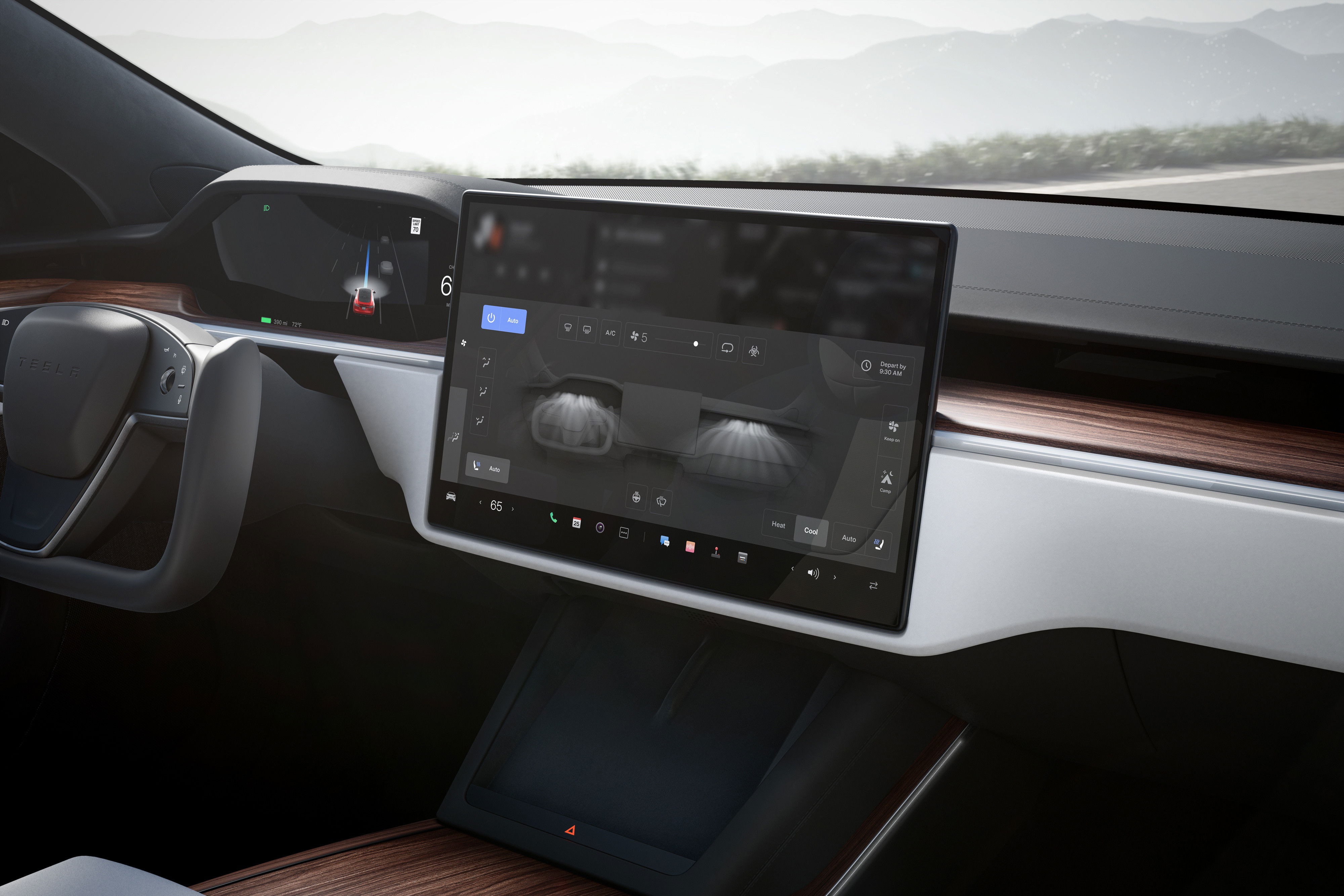
Tesla is known for its over-the-air updates, allowing the company to update the car's software remotely. This means your Tesla Model S can receive new features and improvements without the need to visit a dealership.
That’s particularly good news for Tesla owners in Nigeria. Do you really want to ship your car to and from the USA for critical software updates?
5. Supercharger Network:
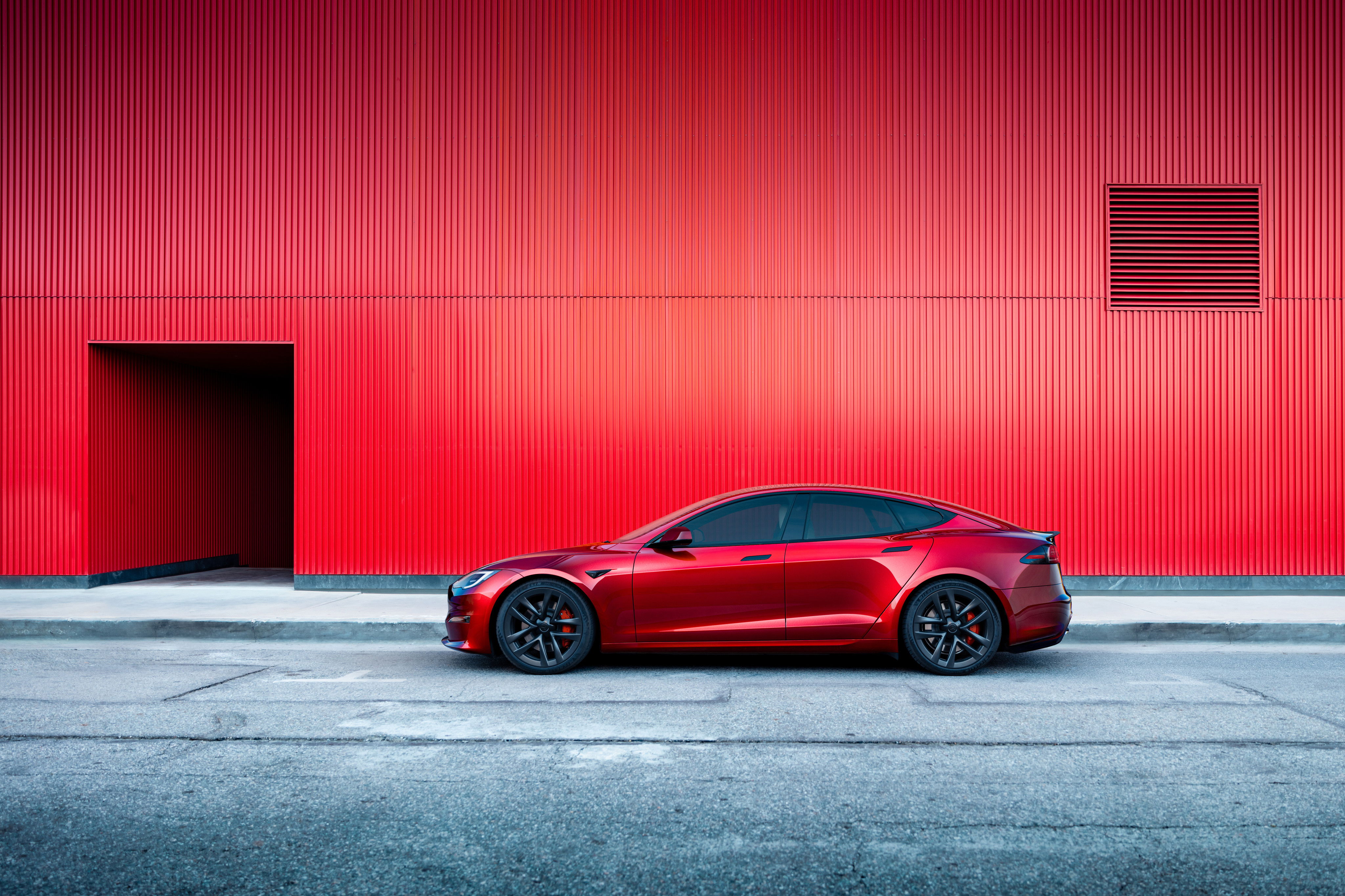
You can recharge your Tesla Model S at any of the company's extensive Supercharger networks. These chargers can provide up to 170 miles worth of juice in just 30 minutes, making it easy and convenient to recharge your car on long road trips.
Yeah, go ahead and roll your eyes over the mention of supercharging stations. Unless we're mistaken (we're pretty sure we aren't), there are zero Tesla supercharging stations in Nigeria and just two EV charging stations across the thirty-six states of the country – each in Sokoto and Lagos.
Be as it may, you can conveniently charge your Tesla at home using the supplied charging connector. With the ability to keep traveling for more than 400 miles on a single charge, you’re unlikely to run out of juice on the road, even when traveling inter-state.
6. Interior Design:
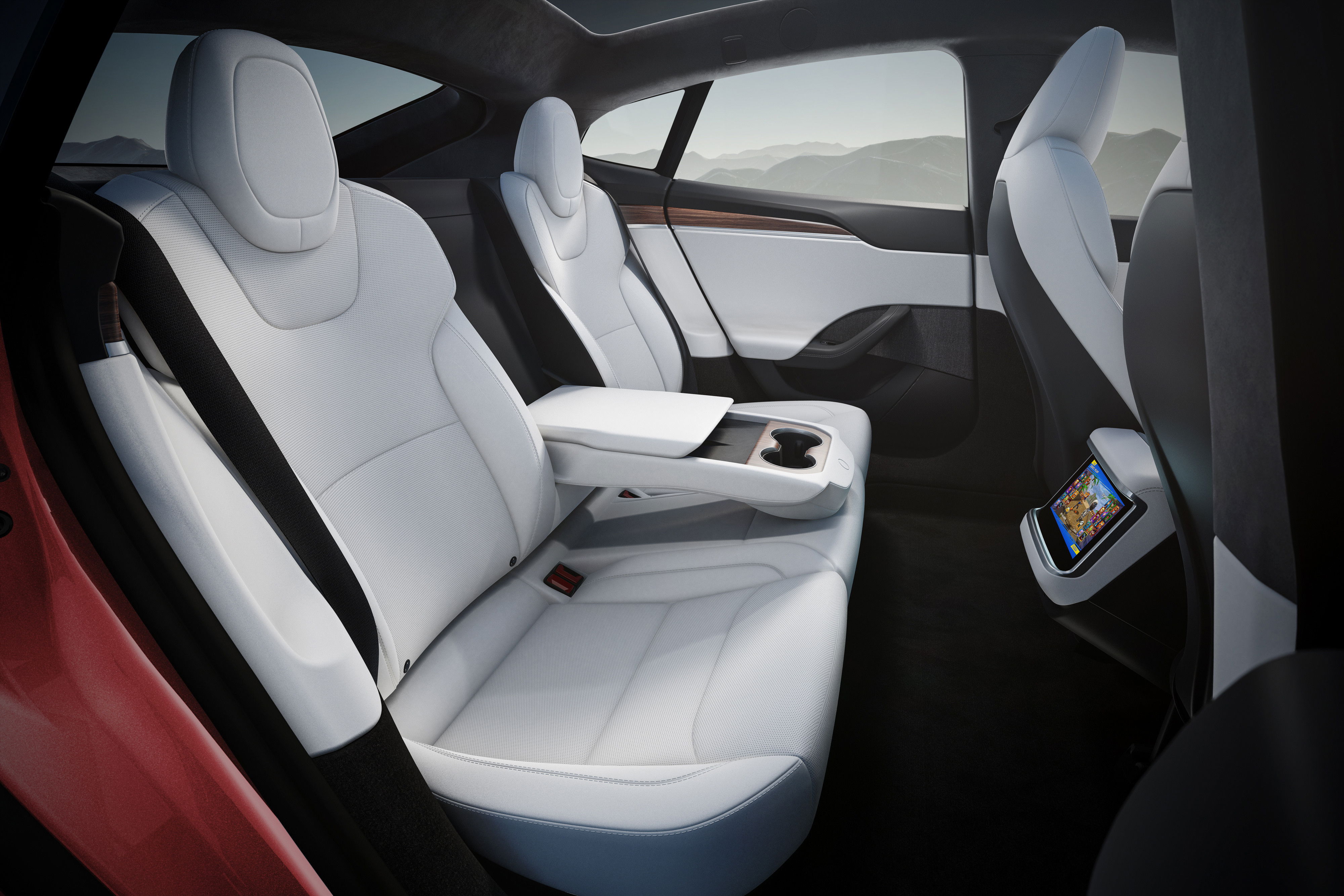
We made a list of the top ten cars with the best interior, and the Model S made the list because of its impressive style-meet-function design approach. The Model S’s cabin may not match the stylish and modern elements of its closest competitors, but its minimalist design focuses on functionality.
The car features a large iPad-like touchscreen display that controls most of the car's functions, including the air conditioning, audio system, and Autopilot.
7. Falcon-Wing Doors:
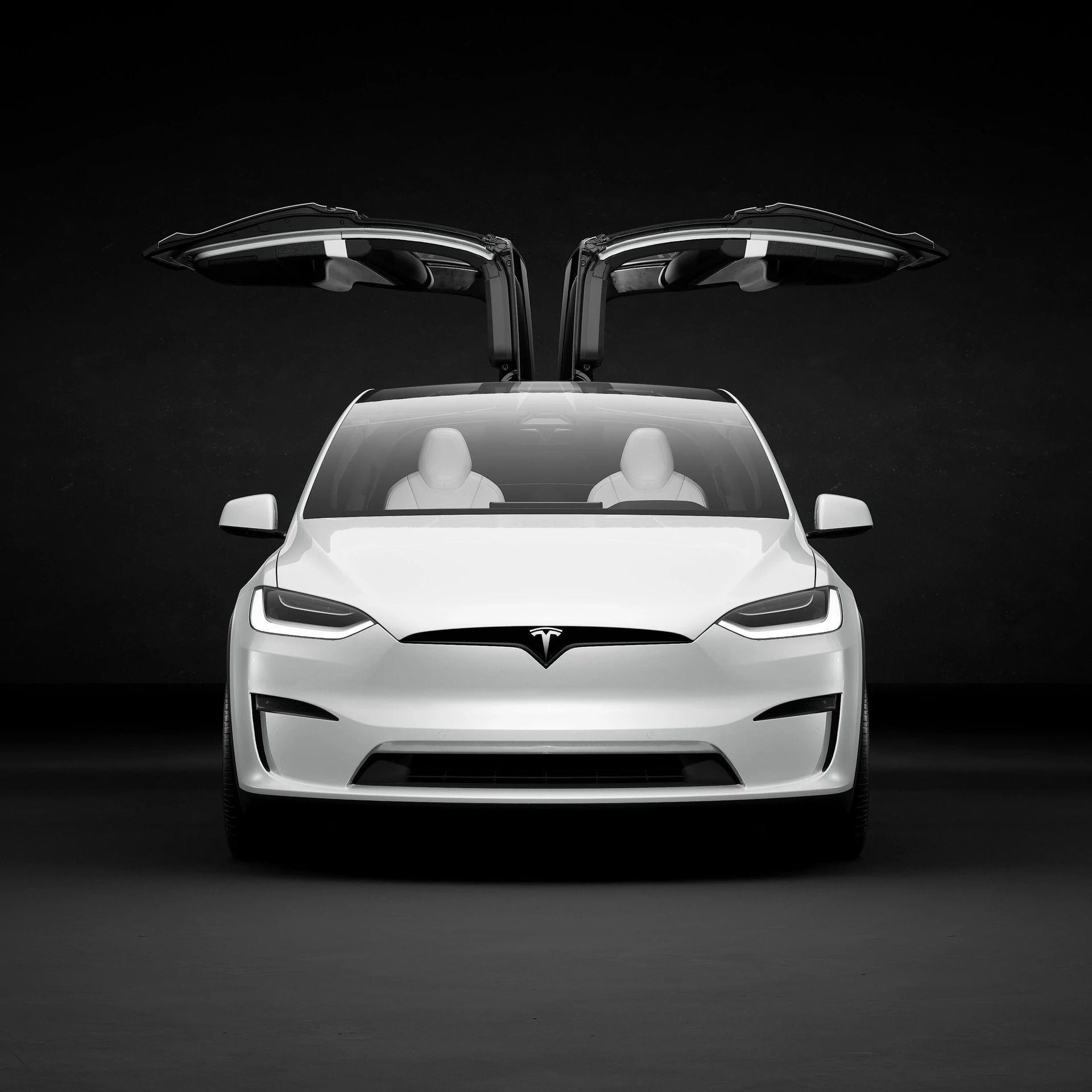
The Tesla Model S features Falcon-Wing doors, which open upwards like the wings of a bird. These doors provide easy access to the car's interior and make it easy to load and unload cargo.
8. High-Strength Glass Roof:
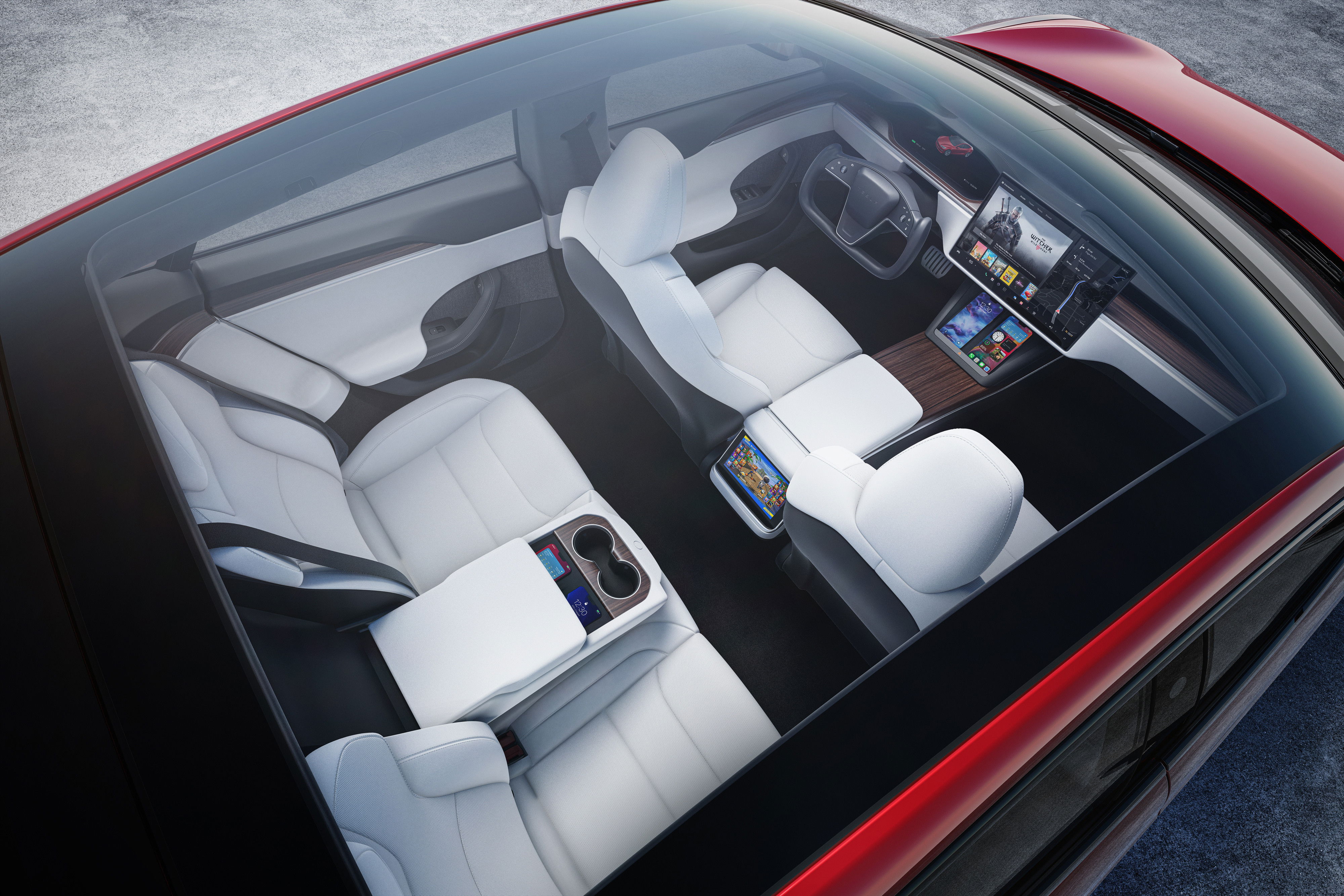
The Tesla Model S features a panoramic glass roof providing a stunning view of the sky. This roof also helps to brighten the car's interior and make it feel more spacious. Notably, Tesla's glass roof has proven to be incredibly strong and durable, as exemplified by a fallen tree accident in China.
9. Regenerative Braking:
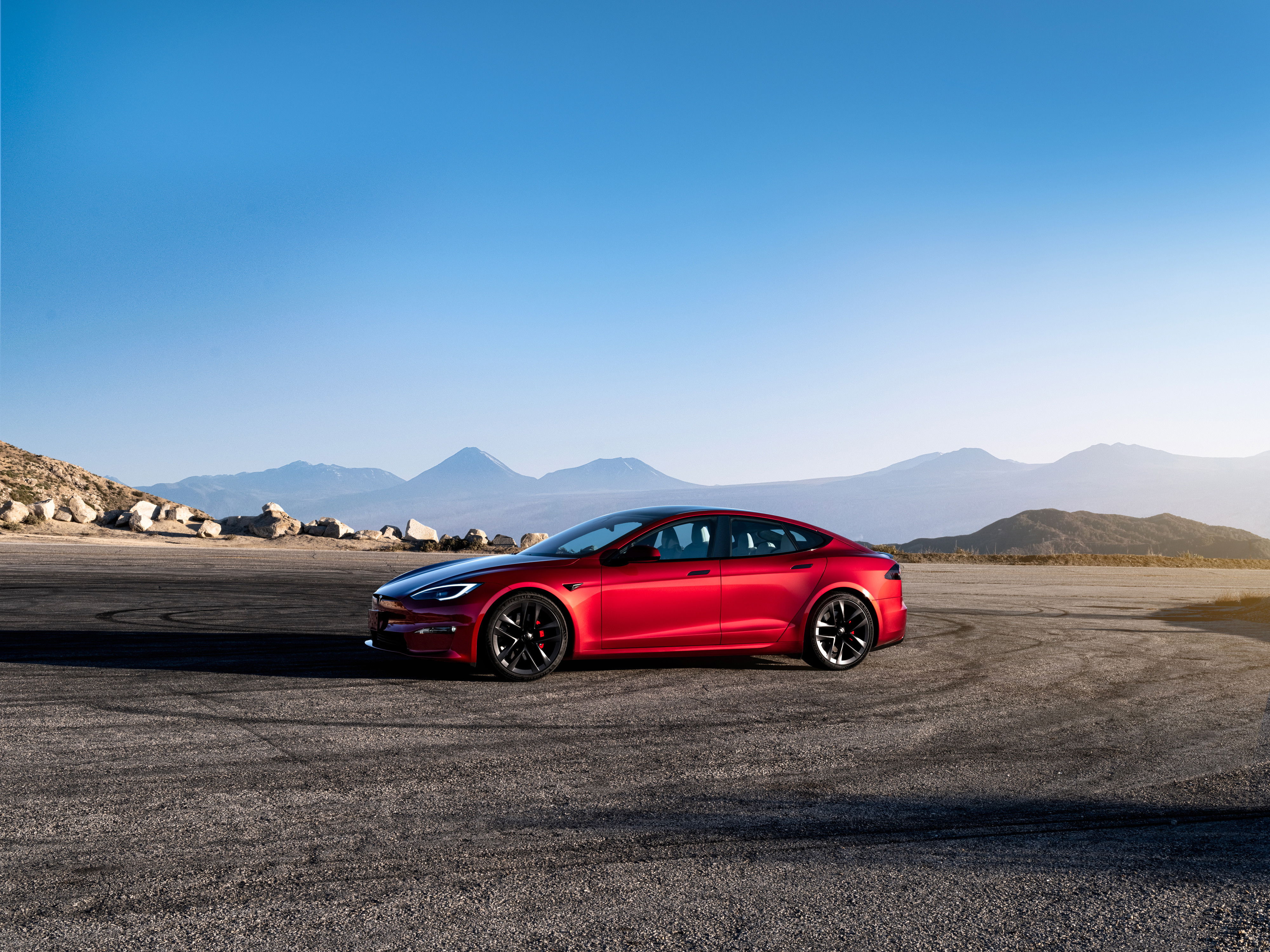
The Tesla Model S uses regenerative braking to help recharge the car's battery. This system captures energy normally lost during braking and uses it to recharge the battery and further extend the car's range.
10. Audio System:
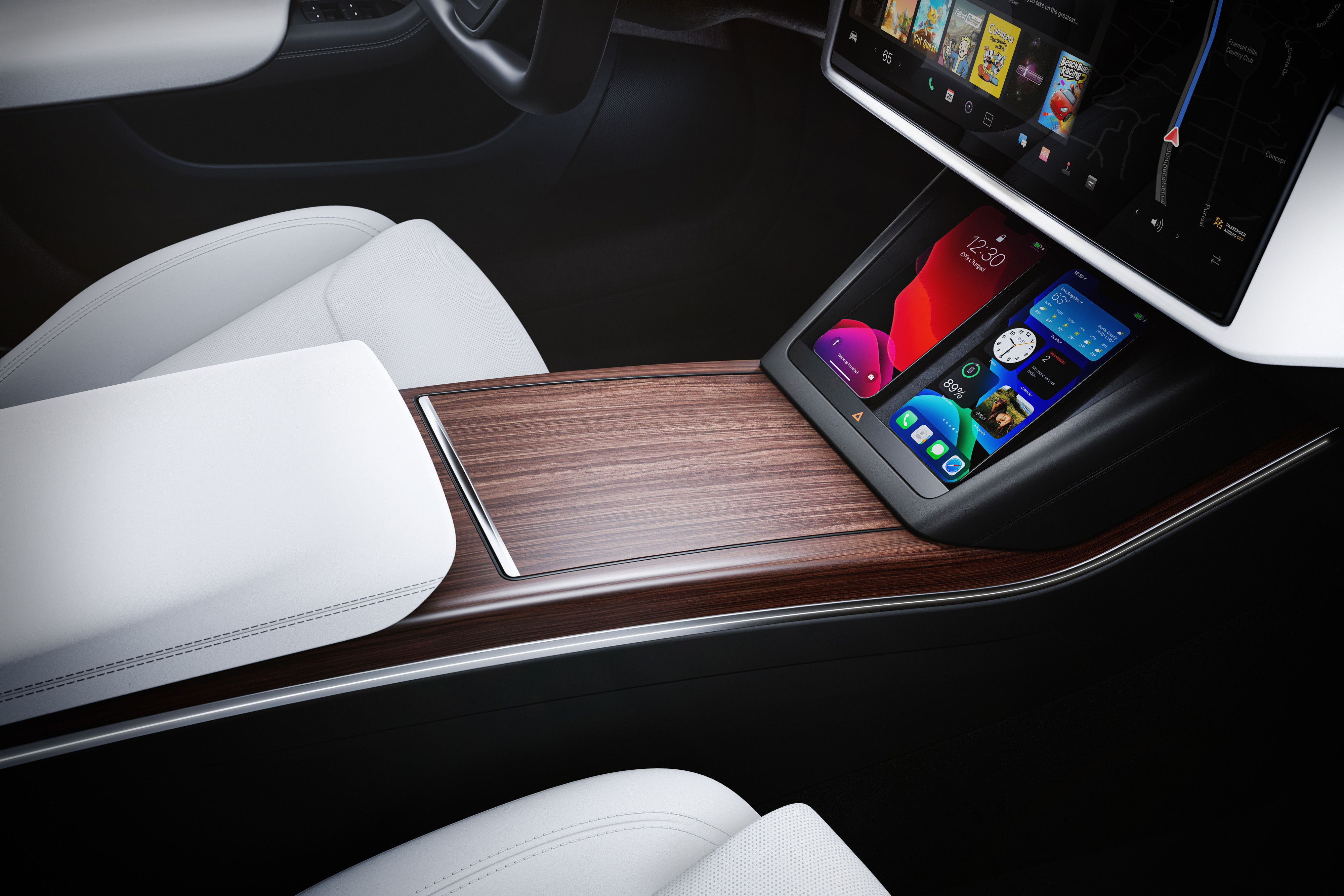
Finally, the Tesla Model S features a premium audio system described as “extraordinary” by Germany's Auto Motor & Sport. It fills the car with high-quality sound via 22 speakers, including overhead speakers squirreled away in the pillars to enhance the Dolby Atmos surround sound technology.
Drivers can control the car's audio system using the large touchscreen display, making it easy to adjust the volume, bass, and treble.
FAQs About The Tesla Model S
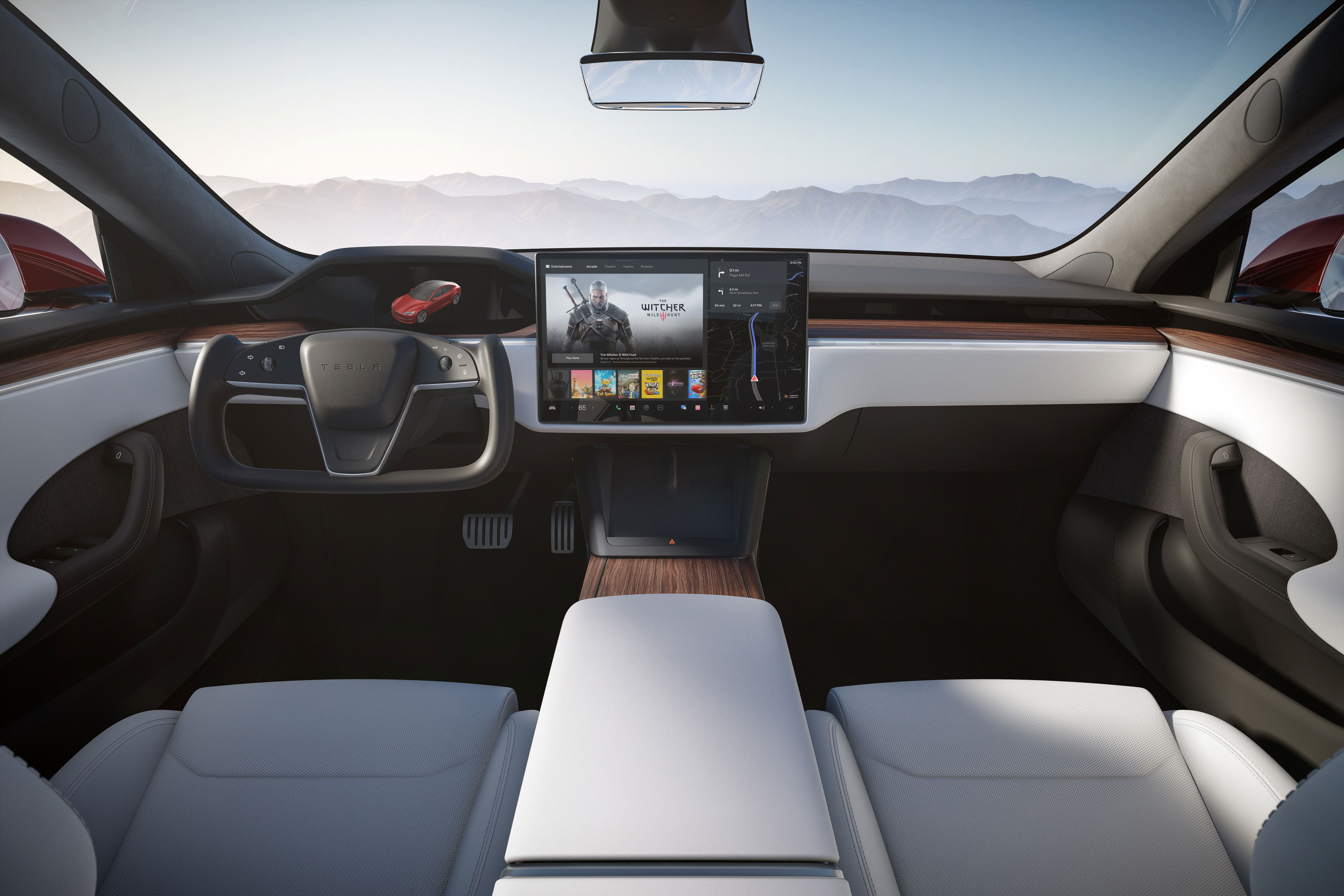
Is Tesla available in Nigeria?
Officially, no. Tesla does not have official representation in Nigeria. That means there’s no Tesla equivalent of Elizade in Nigeria. However, it is entirely possible to own a Tesla in Nigeria through private importation or third-party resellers.
It is worth noting that there may be additional costs associated with importing a Tesla to Nigeria. We might even be so bold as to recommend consulting a trusted import agent and thoroughly researching the process before importing a Tesla or any other vehicle to Nigeria.
Can you buy a Tesla in Nigeria?
As stated above, it’s entirely possible to import and use a Tesla model in Nigeria, including the Tesla Model S. There’s also the fluke chance you’d find one for sale by a private seller in Nigeria (you never know).
However, if you’re looking to buy a brand-new Tesla Model S or any other Tesla nameplate, you’re better off consulting with an import agency (we highly recommend Ship to Naija) or placing your order via Tesla’s website.
Related: These Are 9 CNG-Powered Cars You Can Buy Right Now And Save Money On Fuel
How much is the Tesla Model S in Nigerian Naira?
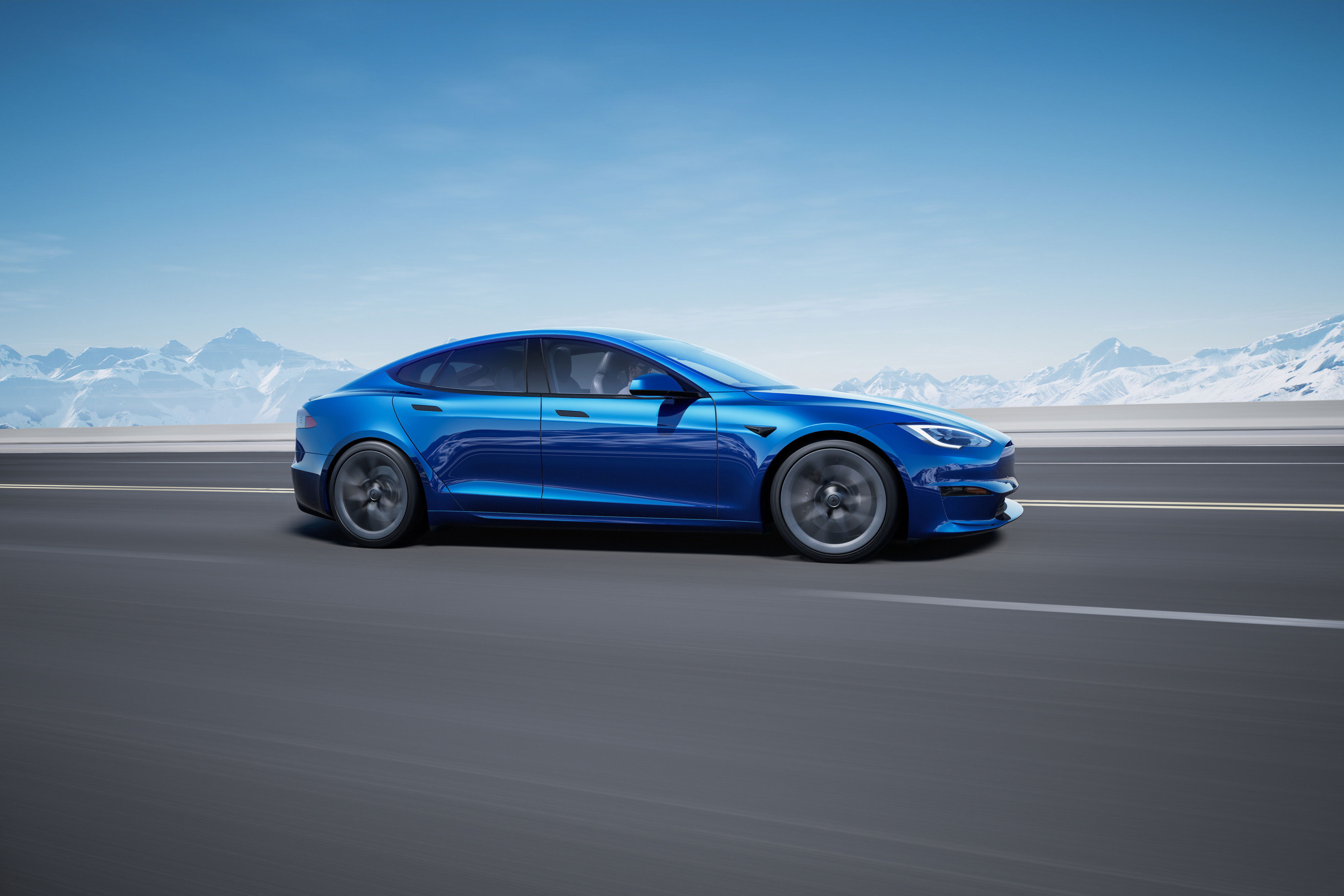
As noted earlier, the Model S starts at $88,490, which translates to 70,737,136.20 naira at the current exchange rate of ₦799.38/$. We understand why people have to ask this question as if the car has a different MSRP (manufacturer-suggested retail price) for Nigerian buyers.
The current exchange rate madness means this question actually makes plenty of sense. If you go for the performance-focused Model S Plaid model, the starting price goes up by a cool $6,000 (₦4.8 million).
If you don’t want to pay all of $108,490 for the ridiculously fast Plaid, you can take solace in the standard AWD on the base Model S. However, the real ‘koko’ is the extra $15,000 (₦12 million) required to get the Enhanced Autopilot package with the complete autonomous driving capabilities Tesla has to offer.
Now, if you can't shell out that kind of money (we agree it's enough to buy a 2021 Nissan Versa or Chevrolet Spark and still have more around $2,000 change), you can take solace that Tesla's Autopilot isn't technically fully autonomous. Which means you still don't get to sleep through your trips.
Notably, these prices do not include logistics and customs duties.
How much is the cheapest Tesla model?
With a $40,240 (₦32.2 million) starting price, the least expensive Tesla car has always been and still is the Model 3 electric sedan.
So, why is Model 3 the cheapest Tesla money can buy?
For starters, the 2023 Tesla Model 3 delivers up to 272 miles of range on a single charge, whereas the base Model S can keep going for over 400 miles.
However, the Model 3 Long Range version can travel 333 miles on a full belly, and its price starts at $47,240, which is still significantly cheaper than the standard Model S’ starting price.
Note that Tesla offers a performance-focused Model 3 variant, with a $53,000 (₦42.4 million) starting price. Although the Model 3's price point is significantly cheaper than the Model S, it costs the same $15,000 to add the Enhanced Autopilot package as the Model S.
Again, you should consider the associated expenses, such as taxes, delivery fees, and optional upgrades. So, the final price will be higher than the advertised MSRP.
Who owns a Tesla in Nigeria?
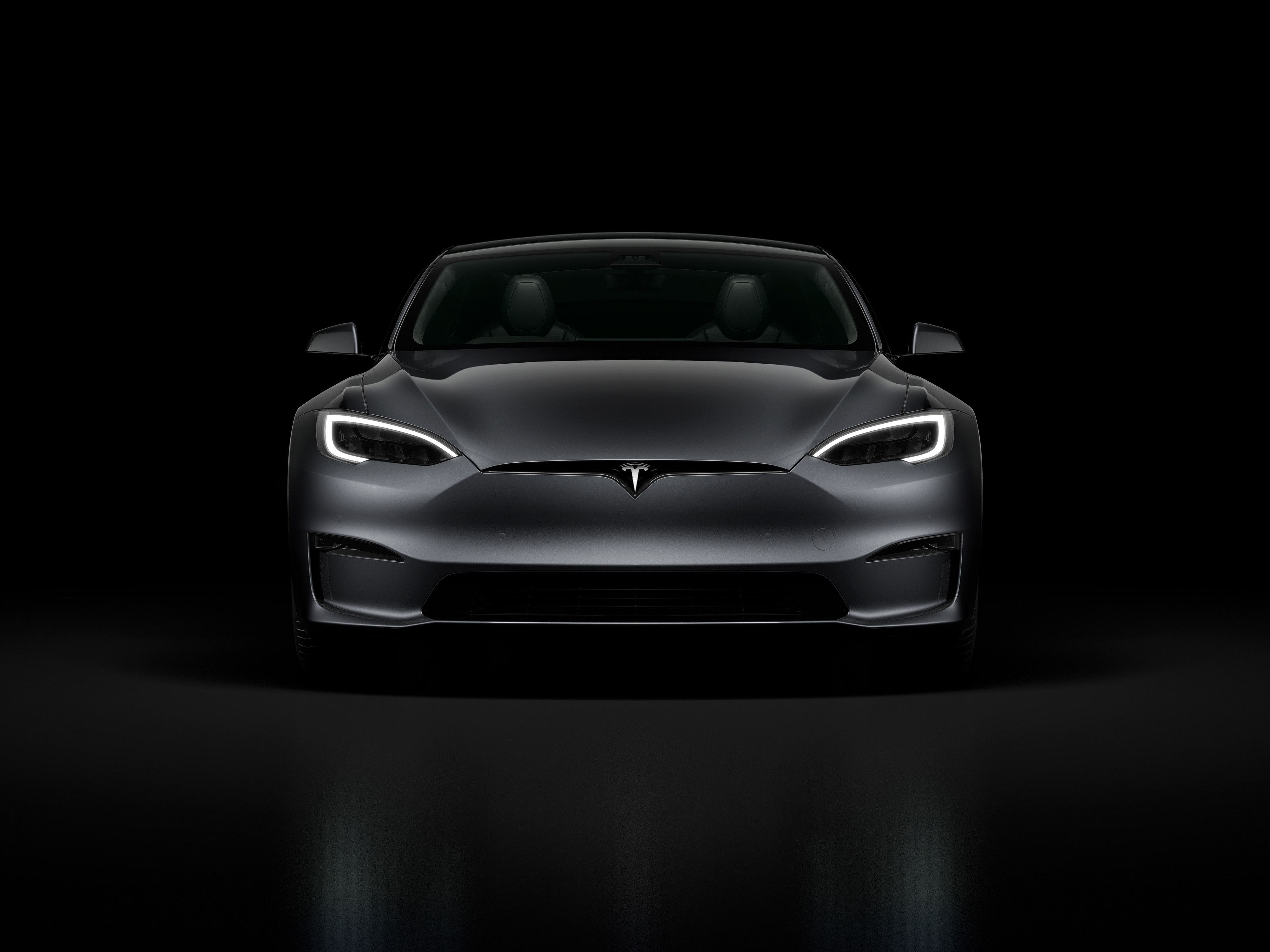
Although we can only name a handful of owners, such as businessman Hamilton Ezeonu who owns and drive a Tesla Model X in Nigeria, Tesla automobiles have been spotted in places like Lagos and Abuja.
Frankly, bringing a Tesla into the country at this stage isn’t a sustainable purchase, considering you don’t have any approved Tesla service center in the country to service your car.
Most Nigerian auto technicians still view EVs as exotic vehicles, making it ill-advised to entrust your Tesla to the care of some roadside Kazeem. Either that or ship the car overseas (South Africa, perhaps) for servicing.
Note that car ownership information is generally considered private and confidential.
Final Word On The Tesla Model S’s Coolest Features
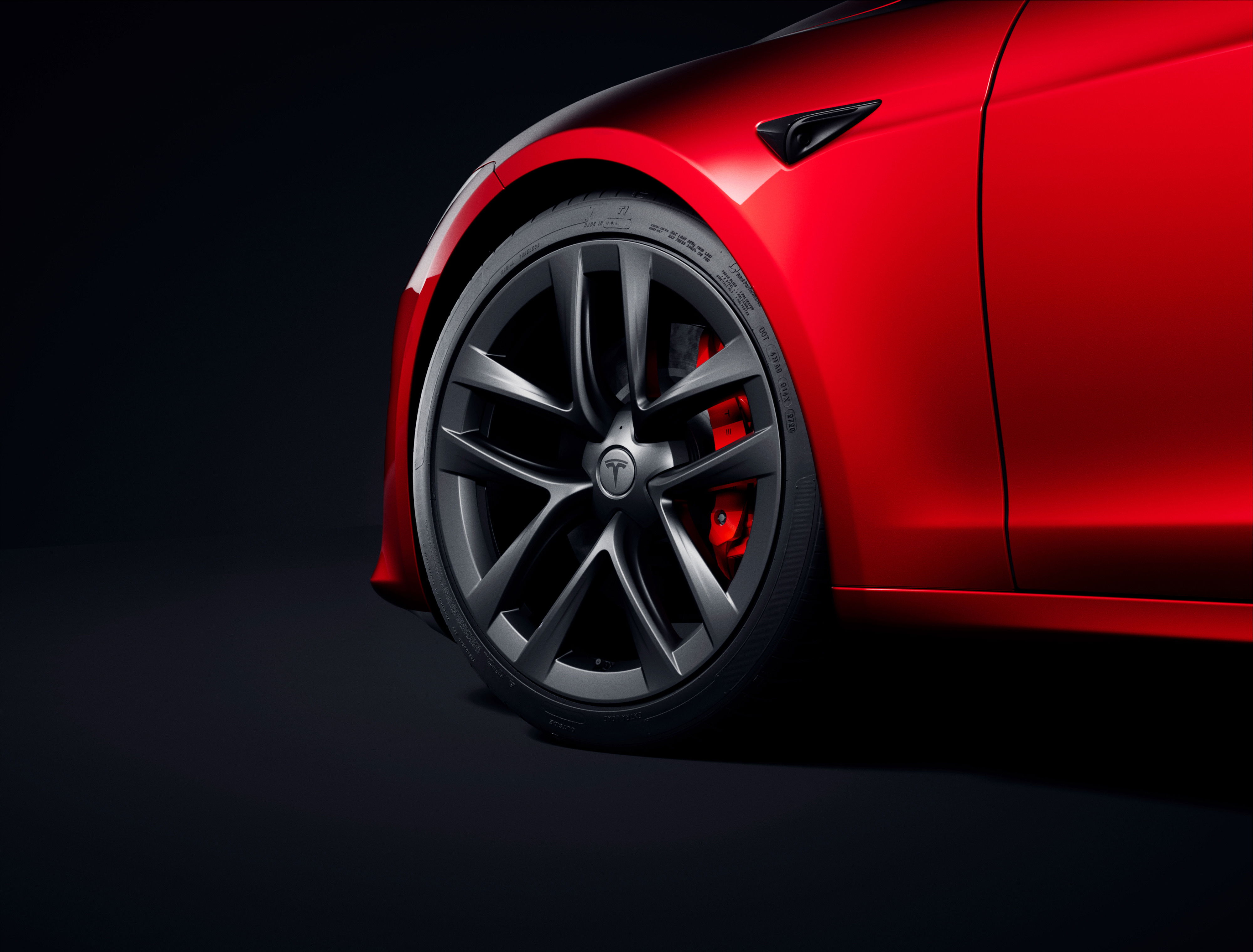
The Tesla Model S is an impressive electric car with a range of unique features setting it apart from the competition. From its long-range capability to its impressive acceleration and Autopilot system, the Model S is a true technological marvel.
If you can afford the $88,490 price tag (around ₦71 million, excluding logistics and customs clearance), not even the epileptic power supply in Nigeria can stop you from joining the proud Model S community.